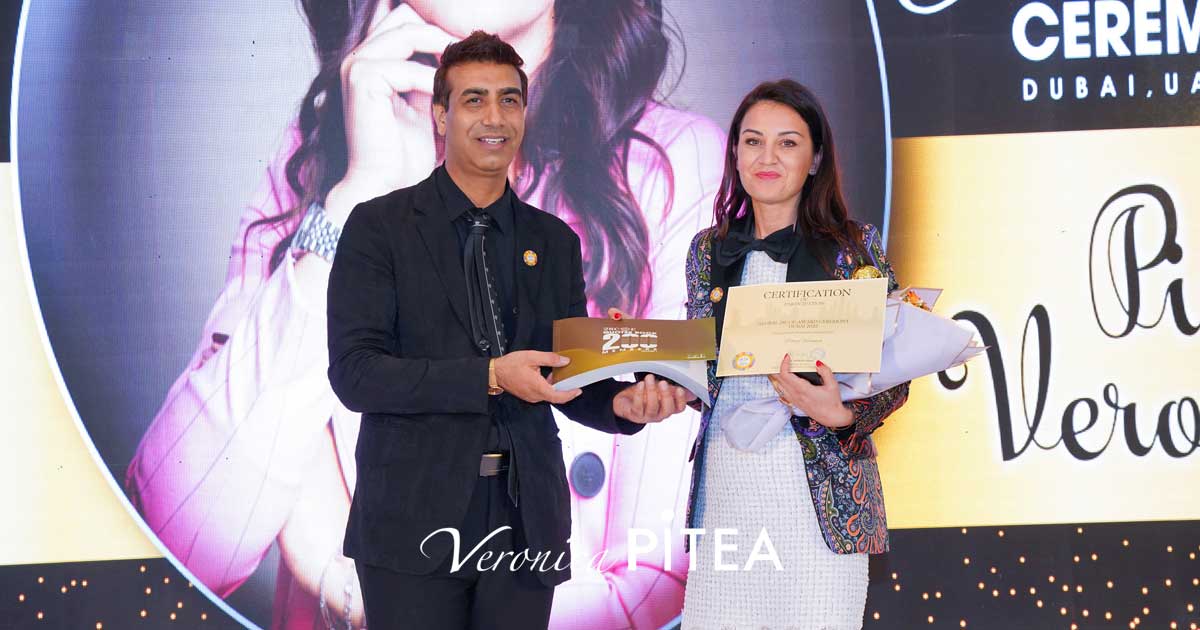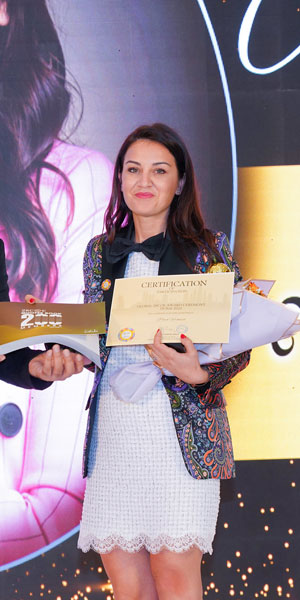18 October 2022

28COE | aceper | Dubai | veronicapitea
Veronica Pitea, ACEPER President: We Don’t Need Gender Quotas; Equality is a Cultural Issue That Must Be Taught to Our Children. The Role of Women in a Changing World
Veronica Pitea, ACEPER President, discusses women’s conditions, her personal experiences, and the award she recently received in Dubai. Let’s start with the award: 28 Credential of Entrepreneur. The international networking platform recently awarded her for her professional activities and entrepreneurial skills.
“A ceremony coinciding with the presentation of the first volume of the 28COE Quotes book, which collects, in the form of quotes, the guidelines, things, and experiences that, in both professional and personal life, have helped the 200 entrepreneurs who collaborated on the book to grow during good times and face and overcome difficulties in hard times. My 28 credentials are included and are a direct result of my experience as an entrepreneur and as a woman. They also awarded individuals who, in their judgment, can make a difference or have made a difference in the business world. These are women and men who started from scratch or successfully started businesses in countries that were not their own and were pioneers in the business they started. Much like us at ACEPER.”
It was also an opportunity to engage with a different international reality. “An interesting and formative experience because networking could indeed change the world. It allowed me to understand that despite many differences, we are still similar and, above all, we can help each other by engaging. Every country, every culture, every person brings their own way of seeing and addressing things; there are always alternative perspectives and approaches to solving problems and seizing opportunities. Opening up to the world helps in any case.”
Regarding gender equality: unfortunately, the Middle East is not the best example. “Indeed, even though it was an international event in a city, Dubai, which has objectively also become international and in many ways ultra-modern and cutting-edge, I felt the weight, a chasm compared to Europe. In those parts of the world, you always feel watched and, at the same time, little considered. This is noticeable even in small things. For example, in a conversation, people tend to address the man and not the woman, in restaurants the man is often served first, in taxis the door is opened for the man and not the woman. These may seem like trivialities or coincidences, but they made me reflect because they still deeply mark the difference compared to the Western world.” The road to achieving the right to equality seems long.
“Somewhere you have to start, and events like this and others can help. It helped me understand how there are countries much more disadvantaged and how far ahead we are in this path as Europeans.” A path that, however, remains difficult and far from concluded even in Europe. “Looking back at my professional career, I realize it’s still a long journey. I came to Italy about ten years ago after managing a call center in Romania and after several other experiences in my country and abroad, called by an Italian company that promised me a job. Once I arrived, practically without a contract, they sent me to Tunisia, again without a proper employment contract, and there I managed another call center for a while. Then they called me back to Italy, still without a contract and always paid late.

Press review
For information


